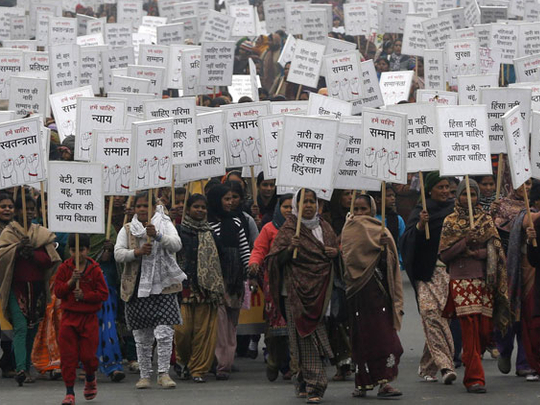
New Delhi: Chief Justice of India, Altamas Kabir, inaugurated Delhi’s first fast-track court to hear the December 16 gang-rape case of the 23-year-old victim who died in a Singapore hospital last week.
The fast-track court is located in South Delhi’s Saket court complex. Three other fast-track courts have also been set up at Dwarka, Rohini and Tis Hazari court complexes. All four courts will take up cases of violence against women and become functional from tomorrow.
Delhi police have finalised a 1,000-page charge sheet against the six accused, including a juvenile. Report on his bone tests undertaken to determine his exact age is expected Thursday.
The juvenile was two months short of turning adult when he along with five others attacked the physiotherapy student on a moving bus.
Police will file the charge sheet against the six accused before a magistrate who will then transfer the case to the fast-track court. The fast-track court is to then decide when to summon the accused for a hearing, which may get delayed since the Delhi Bar Association Wednesday announced that none of its members will turn up as advocates for the six accused, who have been charged with rape and murder.
The court in that case may have to appoint advocates for them to ensure they are represented properly.
The prosecution has said that it will try to finish the trial in a month and will seek maximum punishment. While the five adults accused may face capital punishment or life imprisonment, the juvenile accused, if not proved to be an adult, may walk away with a three-year confinement in a children’s home.
The government’s decision to send the case that has outraged an entire nation has however failed to convince youths to call off their protests.
Two youths belonging to Uttar Pradesh who have been on hunger strike for 10 and five days respectively were again joined by a large number of youths and students at Jantar Mantar to press for their demand for an amendment to laws to deal with rape cases and make the country safer for women.
The victim, born and brought up in Delhi, originally came from Balia district of Uttar Pradesh.
Her rape and subsequent death has kicked off a fresh debate with federal minister Shashi Tharoor suggesting revealing her identity and naming the amended anti-rape law after her.
According to rules, the identity of a rape victim is not supposed to be made public.
The family of the Delhi gang-rape victim has no objection to her name being revealed, her brother said Wednesday.
“We have no objection to revealing her name,” the 23-year-old’s brother said over the telephone from Ballia in Uttar Pradesh. The family has temporarily shifted to its village from Delhi.
“We also have no objection if the (revised anti-rape) law is named after her,” he said.
“It will be an honour for my sister,” the 20-year-old brother said, four days after the young physiotherapy intern died in a Singapore hospital.
“If it is announced (by the government) that the new law is being framed in her name, we have no problem.”
The victim’s father told a television channel that if the law was named after her, it will be good.
“It will honour her courage, if an anti-rape law is named after her,” he said.
The federal home ministry Wednesday said that there is no provision in the Indian Panel Code of naming a law after an individual.












